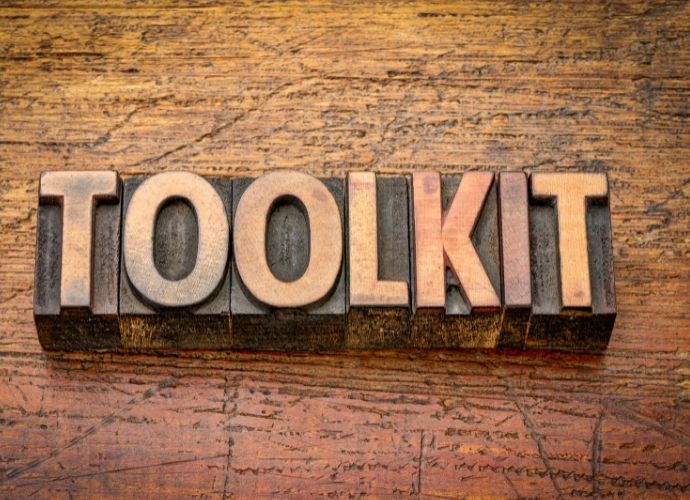Technology has changed the world in unimaginable ways. From the way people shop to the way people manage businesses, the functioning of the world has undergone wide-scale evolution. While technology has been making things simple, easy, and convenient for the world since the time stone tools first came into existence, its capabilities were limited due to its incapability to replicate or even understand human intelligence.
But this isn’t a challenge anymore. With Artificial Intelligence (AI) technologies, even the element of human feelings, emotions, and sentiment fail to limit technology’s capabilities. Natural Language Processing, the NLP toolkit, is one such product of AI that has helped address this very challenge.
Understanding Natural Language Processing Toolkits
Human interaction and conversation is based on intelligence, sentiment, and emotion. These are the elements that limit technology’s scope. But the invention of NLP tools is changing that. Before we share the best options for your NLP toolkit, it’s best that we first understand exactly what these are.
To begin with, natural language processing is a field of AI. This is a form of technology that makes human language intelligible to machines. With this kind of processing capability, machines can easily interpret human language and decipher the meanings within a conversation. Natural language processing tools combine linguistics with computer science that helps machines understand and work by the language rules and structures.
These tools that are created using machine learning technology and NLP algorithms can be used to understand the unstructured data, such as human language, including morphology, semantics, pragmatics, and syntax.
The Benefits of Integrating NLP Toolkits
Email filters. Smart speakers. Voice assistants. Autocorrect. Predictive text. Machine translation. Chatbots. Automatic summarization.
NLP tools are everywhere.
There is a plethora of ways both startups and large-scale enterprises can benefit from integrating the NLP toolkit into their operations.
- Ability to perform analysis on a large scale.
- Automated processing in real-time.
- Tailored NLP tools for unique company goals.
Best Natural Language Processing Toolkits for Startups and Enterprises
Are you an owner of a startup and looking for the perfect tool? Here is a list of top speech-to-text apps to help you improve and grow your business.
MonkeyLearn – A Tool for All
The first on our list of best tools for natural language processing is MonkeyLearn. This NLP-powered tool is known for its capabilities to perform efficient sentiment analysis, keyword extraction, and topic classification. This tool does all tasks that a user might expect from an NLP tool, and the best thing? It is available in all major programming languages. While this tool offers pre-trained models for the users, it also allows users to benefit from tailored machine learning models. Another fascinating capability of this tool is that it allows users to connect the created model with apps such as Excel, Google Sheets, Zapier, and many others.
IBM Watson – Redefined Versatility
Recognizing keywords, identifying categories, understanding emotions, identities. If you’re looking for an NLP tool that lets you do all this, IBM Watson, an AI services suite, is the perfect tool. It is a versatile tool for natural language processing that is stored in the IBM cloud. The best thing about this tool is that it can be tailored according to any and every industry.
Stanford Core NLP – Ideal for Simplifying Complexity
Maintained by Stanford University, the Stanford Core NLP is a Java-based popular library with APIs in many different languages. Unfortunately, to use this library, users must have JDK installed on their computers. There is a plethora of NLP tasks that can be performed with this tool. The most highlighted ones include named entity identification, part-of-speech tagging, and tokenization. The most praised features of this NLP tool include speed optimization and scalability, the two best elements for complex task management.
TextBlob – An Intuitive and User-Friendly Beginner Tool
If you’re a fan of NLTK, you’ll most definitely love TextBlob. Why? Well, this python library-based tool is an extension of NLTK, offering a more intuitive and user-friendly interface. It is an open-source library tool, but it is way simpler compared to other tools in this category. For startups that entered the corporate sector just a while ago, this tool is perfect for them. Among the many amazing features it offers, the ones that stand out include text classification, analysis of sentiment, and part-of-speech tagging.
SpaCy – Designed to Make the Job Easier
Another one on the list is SpaCy. Available only in English, this is an open-source natural language processing tool that was launched in 2020. Within one year of its launch, this NLP with python libraries has caught the attention of many, thanks to its pre-trained NLP models. This tool is super fast and well-documented, allowing users to manage bulk data without any delays. Even the options offered are short, but this makes things simple and easy for users. One of this tool’s best features is its capability to effectively prepare deep learning text and not to forget its superior performance in data extraction.
GenSim – Perfect for Topic Modeling
Perfect for large-scale enterprises, GenSim, a highly specialized python library, is designed to manage data in a large volume efficiently. It is fast and scalable. The specialty of this library is its capability of efficiently managing topic modeling tasks. The features that make this one of the best NLP tools include identifying similarities within the text, navigating through different documents, and indexing text. This tool uses Latent Dirichlet Allocation (LDA) and similar algorithms to provide users with effective topic-based management of unstructured data.
These are just a few natural language processing tools available in the market, but they are plenty of more that you can look into, including Google Cloud, Amazon Comprehend, NLTK, Aylien, and many others. Remember, the NLP toolkit you choose must have the features that you’re looking for. Try not to go for the most popular one; instead, choose the one that is offering you the capabilities that will help you and your business perform better.
Frequently Asked Questions (FAQs)
What NLP tools are used in spell checking?
How to install NLP tools?
Step 2: Entering command to install NLP toolkit pip3
Step 3: Installation









